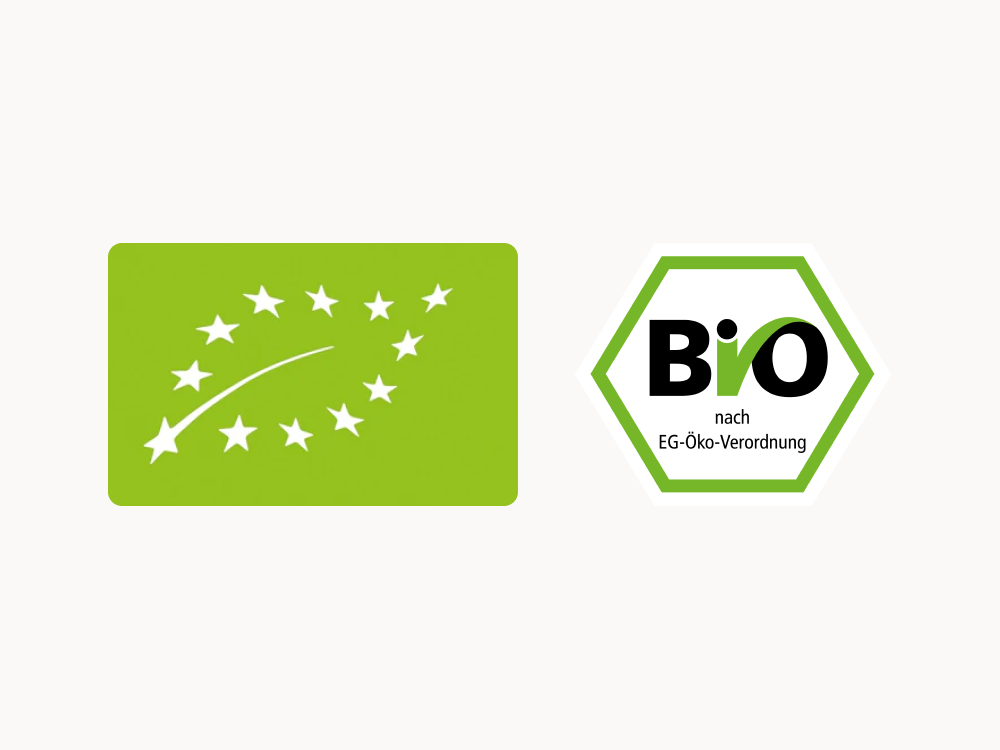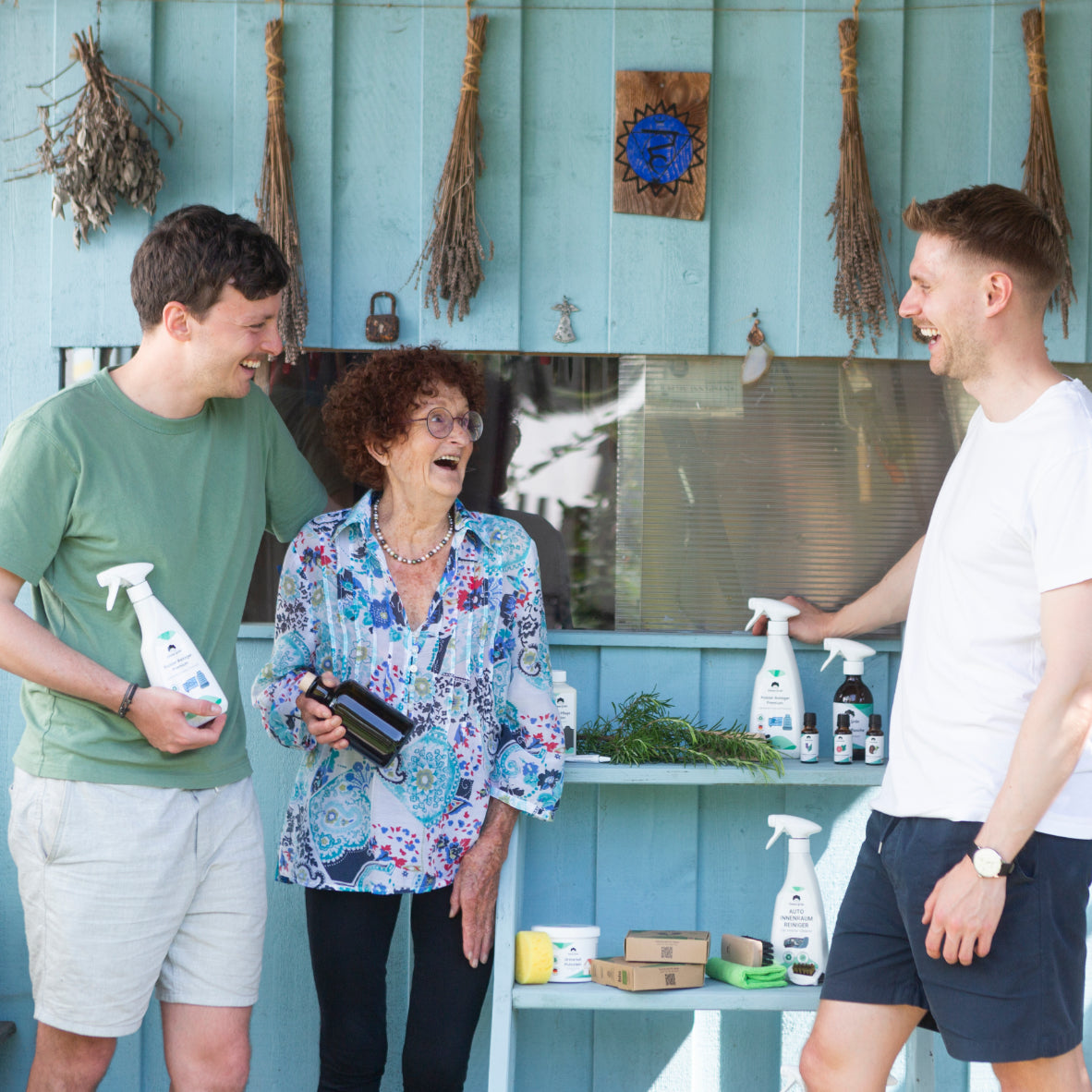Natural stone and various surfactants
Every natural stone is unique and has its own fascinating charisma. If you look closely, you will notice that the texture, structure and color of each piece is unique. In order to preserve the natural beauty of natural stone worktops, the stone surfaces are impregnated during production to make them grease, oil, water and dirt repellent. This significantly reduces the formation of stains and makes cleaning much easier.
The first impregnation is not visible to the eye and is also physiologically harmless. However, this protection wears off over time through cleaning and should be renewed at regular intervals. Natural natural stone slab cleaners such as theEmma Green Worktop Cleaner Granite, Marble and CementThe sooner the natural stone is cleaned after use, the easier it is to clean and the less residue it leaves. The longer colorants such as beetroot and cherries, as well as residues of fats such as oils and butter, are able to penetrate the microscopically tiny crystal joints of the material, the more difficult they are to remove. For this reason, foods with intensive coloring and fats should not be processed directly on natural stone worktops.
You should also be careful with acidic foods such as citrus fruits and vinegar: they attack marble, cement, granite and limestone and destroy the polish. Cleaning utensils such as scouring pads also ruin the surfaces of natural stone. That's why you should generally avoid using them and instead use soft sponges and cloths for cleaning.
Another factor that damages the sensitive surfaces of natural stone are grease-dissolving all-purpose cleaners and soft soaps. Over time, they make the stone porous and form residues. The result: your worktops lose their natural beauty and get dirty faster than before. Natural stone cleaners, on the other hand, which are based on sustainable ingredients such as non-ionic surfactants, clean the stone in a gentle way.
What surfactants are there and why are non-ionic surfactants better for the environment?
Surfactants are detergent substances. They are responsible for making two liquids that cannot actually be mixed together miscible. But how does that work? Surfactants consist of a water-repellent (hydrophobic) molecule part and a water-loving (hydrophilic) molecule part. They are therefore located at the interfaces between two different substances. If we consider a water-oil mixture, in simple terms one surfactant would point towards the water and the other towards the oil. The result: The surfactants ensure that the interfacial tension of both substances is reduced, the surfactant acts as a mediator and both substances can be mixed together.
The fact is: According to EU legislation, all surfactants available on the market must degrade within 28 days. Each type of surfactant acts differently: some are very good for washing and others are better for emulsifying. Depending on the electrical charge of the hydrophilic molecule, they are divided into four different groups:
Anionic surfactants:These surfactants are negatively charged. They have a high washing power, foam a lot and are therefore mainly used in the production of detergents. They can also be found in household cleaners and dishwashing detergents as well as in hair shampoos. Due to their ingredients, they are classified as questionable.
Catonic surfactants:This type of surfactant is positively charged. They are made from animal fats and have minimal cleaning power. Because they make laundry soft and hair easier to comb and also have an antistatic effect, they are often used in fabric softeners and shampoos. Catonic surfactants can cause skin diseases. If they get into the wastewater, they also harm the environment.
Non-ionic surfactants:These surfactants have no charge. They are used as a sustainable ingredient in washing and cleaning products. Skin cleansing and care products also benefit from their effect. Compared to other surfactants, non-ionic surfactants are skin-friendly and easier to break down. They are also less sensitive to hardness than, for example, anionic surfactants, which means that they develop their full effect even at low washing temperatures.
Amphoteric surfactants:They have a negative and a positively charged group and are also known as "zwitterionic surfactants". They serve as co-surfactants for other surfactants, are mainly of plant origin and are gentle on the skin. They are used in shampoos, cosmetic products and dishwashing detergents. Along with non-ionic surfactants, they are considered to be the most environmentally friendly of their kind.
Which surfactants should you avoid and which should you use?
If you do the dishes, clean or wash your hair and the product you used produces huge amounts of foam when combined with water, this is usually caused by anionic surfactants. Non-ionic surfactants such as sugar surfactants, on the other hand, produce less foam, but that does not mean that they are less effective. But how do you differentiate between the individual products based on the INCI declaration? Good tip: The endings reveal whether the surfactant in the different groups is mild or aggressive.
The anionic surfactants
The aggressive anionic surfactants can be identified by the ending “sulfate”. Examples of these areAmmonium Laureth SulfateandSodium / Ammonium Lauryl Sulfate. Somewhat less aggressive are surfactants such asDisodium Laureth SulfosuccinateandAlkyl carboxylate. The most skin-friendly of this group include representatives such as the anionic surfactantDisodium/Sodium Cocoyl Glutamate.
The non-ionic surfactants
The most important group of non-ionic surfactants are the Fettalkoholethoxylate(FAEO). Examples of these generally well-tolerated surfactants are the following:
- Laureth-4/Laureth-3/Laureth-7/Laureth-10
- Ceteth-24/Ceteth-20/Ceteth-10/Ceteth-2
The mildest surfactants among the non-ionic representatives are the sugar surfactants. On the packaging they are named «Glucoside» declared. Well-known examples areCaprylyl,Coco-GlucosideandCapryl Glucoside.
The amphoteric surfactants
The mild and environmentally friendly as well as skin-friendly amphoteric surfactants often end with the suffix «betaine». Other representatives of the amphoteric surfactants areCocoaamphodipropionateas well as Disodium Lauroamphodiacetate.
Conclusion
Surfactants can be found in countless products. Some are more aggressive and others are milder. For this reason, it is advisable to always take a closer look at the ingredients when buying products. As a rule, mild surfactants work just as easily as the aggressive ones, if not better, as can be seen very clearly with amphoteric and non-ionic surfactants. They are also more skin-friendly and less harmful to the environment. What more could you want.













 Natalie, Sarah und über 204.199+ weitere Personen lieben Emma Grün.
Natalie, Sarah und über 204.199+ weitere Personen lieben Emma Grün.




















